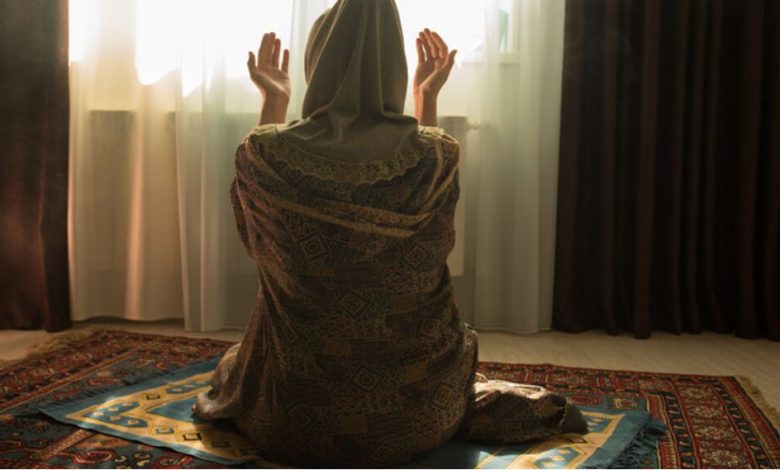Daily Spiritual Habits Every Muslim Woman Should Embrace

Introduction
In our fast-paced world, staying spiritually grounded can be a challenge—especially for women who juggle multiple roles every day. But Islam beautifully integrates spirituality into daily life, offering Muslim women countless opportunities to draw closer to Allah without needing to detach from their worldly responsibilities.
Whether you’re a student, working professional, mother, or all three, incorporating intentional spiritual habits into your daily routine can transform your mindset, boost your inner peace, and enhance your connection with your Creator. This guide outlines essential practices every Muslim woman should adopt, including prayer, cleanliness, mindfulness, and more.
1. Start Your Day with Fajr and Morning Dhikr
The Prophet Muhammad ﷺ said:
“The two rak‘ahs of Fajr are better than the world and everything in it.” (Muslim)
Fajr isn’t just a prayer—it’s a spiritual jumpstart. Begin your day with wudu, pray Fajr on time, and follow it with morning dhikr. Recite Surah Al-Ikhlas, Al-Falaq, and An-Naas three times, and say the morning adhkar for protection, guidance, and barakah in your day.
2. Make Wudu a Habit of Purification—Inside and Out
Wudu is more than physical cleanliness—it’s spiritual purification. Every drop of water washes away sins and prepares you to stand before Allah. While wudu is often associated with prayer, it can be made anytime to renew your spiritual state.
For sisters, understanding the proper way to perform wudu according to female-specific needs is important. This detailed guide on how to perform wudu for females provides practical instructions and religious insight.
Quick Tips:
- Intend for purification before starting.
- Make sure to wipe over the head as required—not the entire hair.
- Remove nail polish before wudu to ensure water reaches the skin.<
- Try to remain in wudu between prayers for added blessings.
3. Establish a Solid Prayer Routine
Salah is the backbone of a Muslim’s life. For women, maintaining prayer on time—especially with household or work duties—can be difficult but incredibly rewarding.
Strategies to stay consistent:
- Set multiple prayer alarms or reminders.
- Dress in prayer-ready clothing to avoid delays.
Even if you miss a prayer due to menstruation or travel, stay spiritually engaged through dhikr or reflection.
4. Read and Reflect on the Qur’an Daily
The Qur’an is a source of healing and guidance. Reading even a few verses a day can uplift your spirit. Make it part of your morning or evening routine.
Suggestions:
- Use a Qur’an app for convenience.
- Listen to audio recitations while cooking or commuting.
- Reflect on the meaning—not just the recitation.
Set a goal: even one ayah with understanding is better than ten without reflection.
5. Dress Modestly and Intentionally
Modesty (haya) in Islam is not just about clothing—it’s a mindset. However, dressing modestly can itself be a daily act of worship when done for Allah.
- Choose clothing that is loose, opaque, and respectful.
- Avoid styles driven by the need to impress others.
- Wear your hijab proudly and with purpose.
The intention behind your appearance can make it a form of silent dawah.
6. Make Duas Part of Your Routine
Du’a is a powerful spiritual tool. The Prophet ﷺ said:
“Du’a is the essence of worship.” (Tirmidhi)
Incorporate duas into:
- Morning and night
- While cooking, cleaning, or parenting
- During stress, gratitude, or decision-making
Create a personalized du’a list for things you want in this life and the Hereafter.
7. Practice Gratitude (Shukr) Daily
A thankful heart brings tranquility. Start a gratitude journal and write 3 things you’re grateful for each night. You’ll begin to see blessings even in difficult situations.
As Allah promises in the Qur’an:
“If you are grateful, I will surely increase you [in favor]…” (Qur’an 14:7)
8. Maintain Personal Cleanliness and Hygiene
Islam is a religion of cleanliness. Apart from wudu and ghusl, women should be mindful of:
- Menstrual hygiene
- Removing body hair according to Sunnah
- Using miswak or brushing teeth regularly
- Wearing clean clothes and using unscented products when required (e.g., during ihram)
Cleanliness is not only half of faith—it’s also empowering.
9. Use Idle Moments for Dhikr
Dhikr doesn’t require time or space—just intention. Waiting in line? Doing dishes? Walking? Use these moments to say:
- SubhanAllah(Glory be to Allah)
- Alhamdulillah (All praise is due to Allah)
- Allahu Akbar (Allah is the Greatest)
- La ilaha illa Allah (There is no god but Allah)
You’ll find peace enter your heart even during the busiest of days.
10. Surround Yourself with Spiritual Reminders
Environment matters. Fill your home, phone, and mind with reminders of Allah:
- Place sticky notes with du’as around the house
- Subscribe to Islamic podcasts
- Use Islamic calendar apps for prayer and fasting reminders
Even your digital life can become a means of drawing closer to Allah.
Bonus: Spiritual Habits During Menstruation
When you can’t pray or touch the Qur’an during menstruation, don’t disconnect. Continue with:
- Du’a and dhikr
- Listening to Qur’an
- Reading Islamic books
- Helping others (charity, family care, kindness)
Your intention still counts. Use this time to recharge and reflect.
Conclusion
Being a spiritually connected Muslim woman isn’t about doing everything perfectly—it’s about doing small, consistent acts with sincerity. When you align your daily habits with your faith, every routine task becomes an act of worship.
From the way you purify yourself—like following the correct steps of how to perform wudu for females—to how you speak, think, and act, every detail matters in the eyes of Allah. You don’t need to be extraordinary to be spiritually strong—you just need to be intentional.







